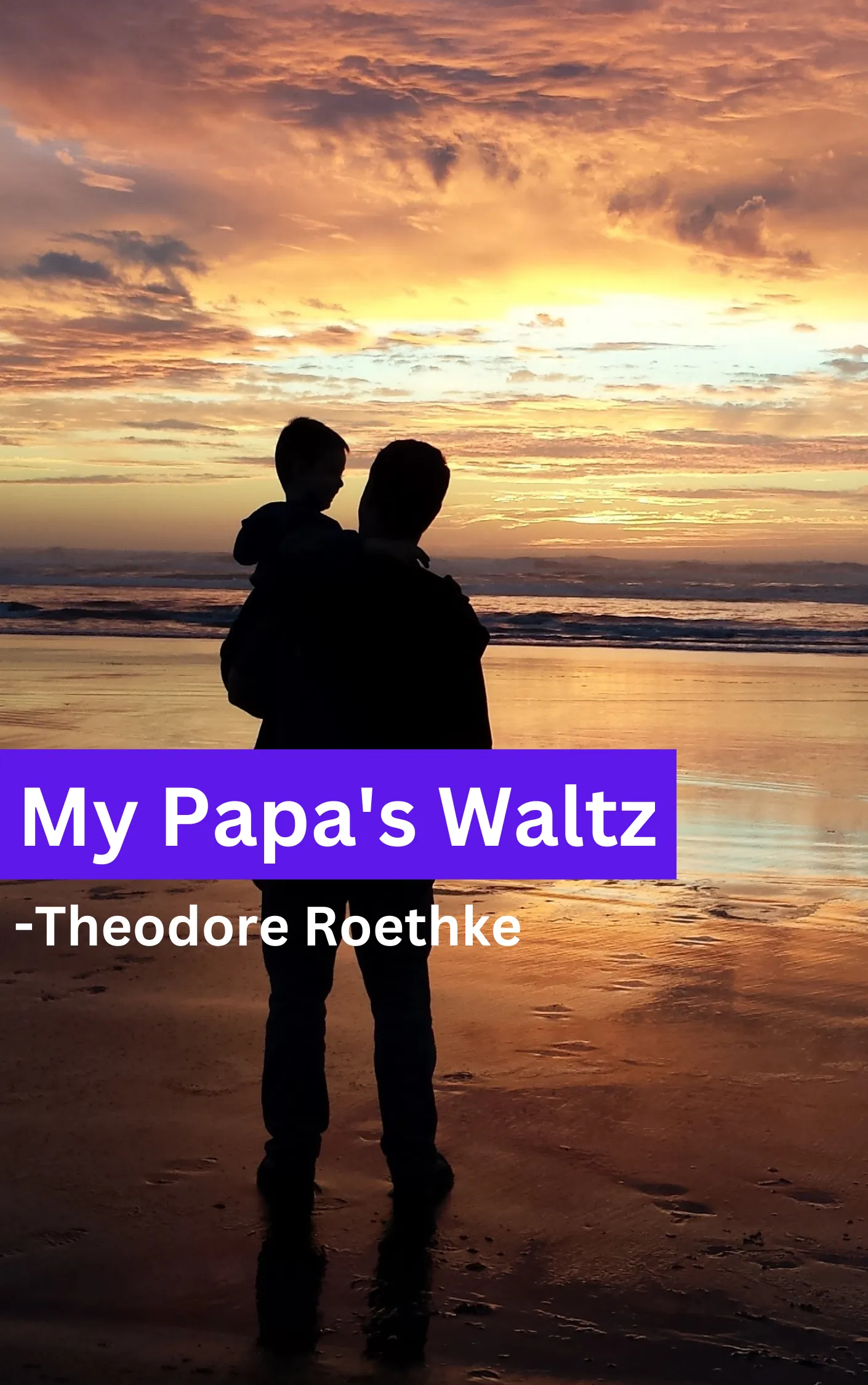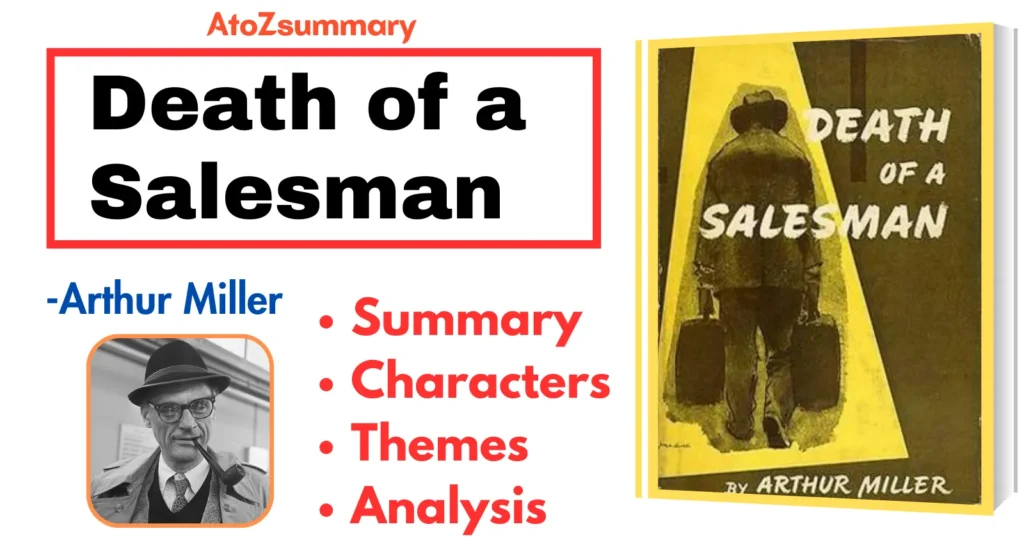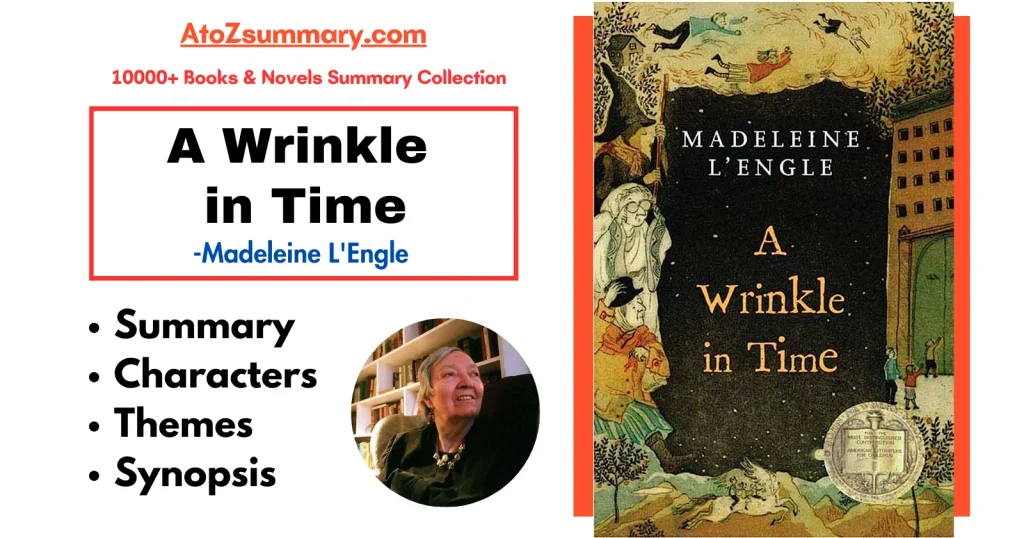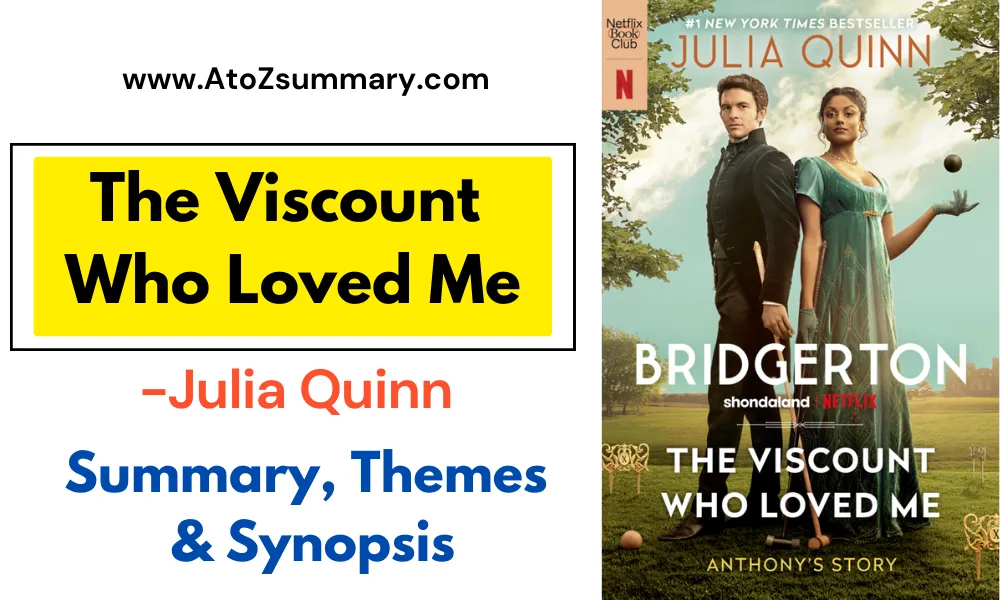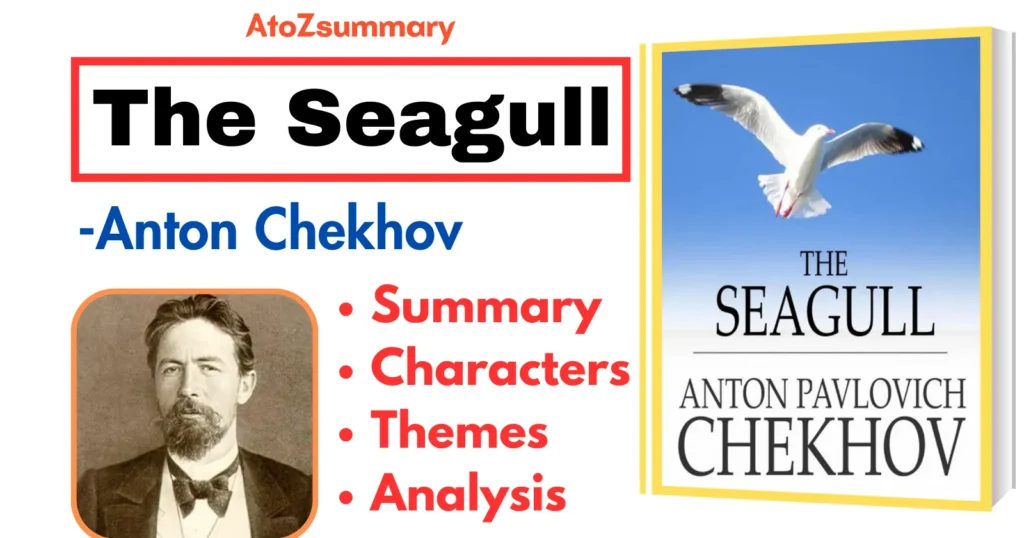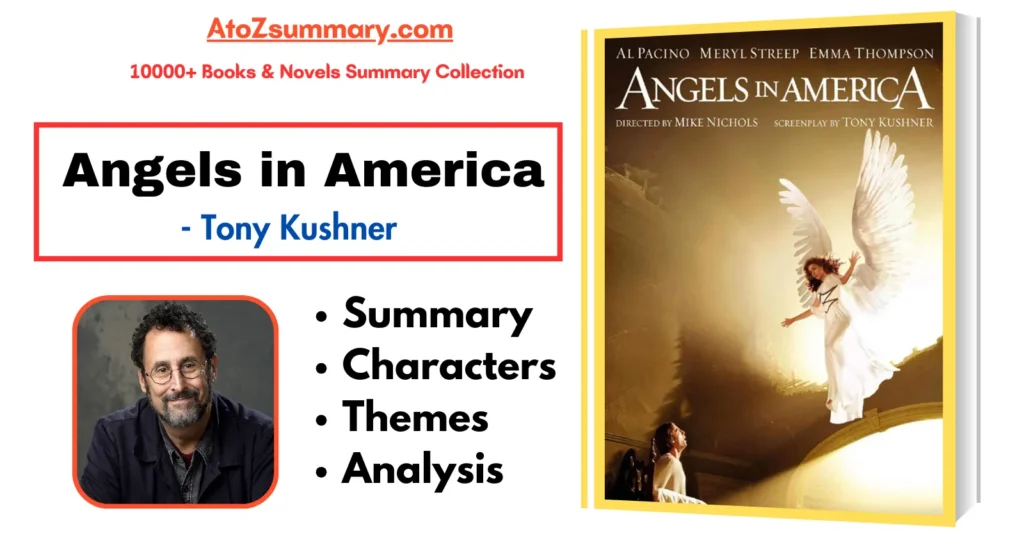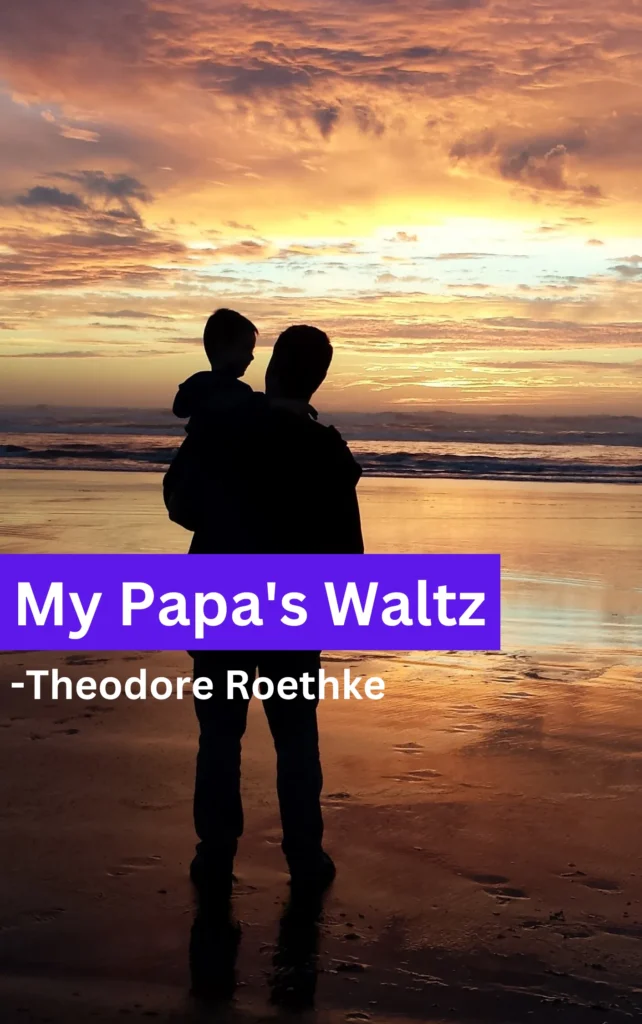
About Poem: My Papa’s Waltz
| Poem Title | My Papa’s Waltz |
| Poet | Theodore Roethke |
| Published | 1942 in the collection “The Lost Son” |
| Form | A 4-stanza poem |
| Rhyme Scheme | ABAB |
| Theme | Complex relationship between a child and his father; Ambiguity; Nostalgia |
| Tone | Ambivalent, a mix of affection and fear |
| Imagery | The poem uses vivid imagery to depict the dance between the father and child, the smell of whiskey, and the boy’s roughhousing. |
| Speaker | A young boy who dances with his father, reflecting on their relationship. |
| Symbols | The waltz, the father’s hands, and the kitchen symbolize the complicated nature of their relationship. |
| Mood | A mixture of nostalgia, fear, and affection, which can be seen as both positive and negative. |
| Interpretation | The poem can be interpreted in different ways: as an innocent, playful memory, or as a portrayal of an abusive and tumultuous relationship. |
| Poetic Devices | The poem uses alliteration, consonance, and vivid sensory imagery to create its atmosphere. |
Themes: My Papa’s Waltz
The themes of Theodore Roethke’s poem “My Papa’s Waltz” are:
- Father-Son Relationship: The poem delves into the complex and multifaceted relationship between a father and his son. It depicts a blend of affection and fear, capturing the boy’s mixed emotions toward his father.
- Nostalgia: The poem evokes a sense of nostalgia as the adult speaker looks back on a childhood memory of dancing with his father. This nostalgia reflects the speaker’s yearning for the past and the impact of early experiences on his life.
- Ambiguity: The poem is deliberately ambiguous, allowing for multiple interpretations. It’s unclear whether the waltz is a joyful dance or a rough and perhaps unsettling encounter. This ambiguity adds depth to the themes of memory and perception.
- Family Dynamics: “My Papa’s Waltz” hints at the dynamics within a family. The poem suggests that not all familial relationships are straightforward, and it portrays the complexity of a father-son bond.
- Childhood Experience: The poem highlights the lasting impact of childhood experiences on an individual’s life. The waltz is a memory that has stayed with the speaker, influencing his perception of his father and their relationship.
My Papa’s Waltz Poem
The whiskey on your breath
Could make a small boy dizzy;
But I hung on like death:
Such waltzing was not easy.
We romped until the pans
Slid from the kitchen shelf;
My mother’s countenance
Could not unfrown itself.
The hand that held my wrist
Was battered on one knuckle;
At every step you missed
My right ear scraped a buckle.
You beat time on my head
With a palm caked hard by dirt,
Then waltzed me off to bed
Still clinging to your shirt.
My Papa’s Waltz Summary & Analysis
My Papa’s Waltz” by Theodore Roethke is a poignant and evocative poem that explores the complex relationship between a father and his son. Through vivid and somewhat ambiguous imagery, the poem delves into the themes of love, family dynamics, and the mixed emotions that accompany a less-than-ideal childhood. Here’s a stanza-by-stanza summary:
Stanza 1
The poem opens with the speaker recounting a scene where he and his father engage in a waltz. The father’s hands are described as “battered” and “knuckle” scraped, implying that he has a rough and demanding occupation. The use of the word “waltz” suggests a dance, but there’s a hint of chaos and disorder as they “waltz” around the kitchen. The father’s hand is both powerful and slightly painful as it holds the young boy’s hand.
Stanza 2
The second stanza depicts the father’s physical state. His breath carries a strong scent of whiskey, suggesting he may have been drinking. The boy describes his father’s wrist as “caked hard with dirt,” which emphasizes the father’s labor-intensive job and the contrast between the father’s ruggedness and the child’s delicacy.
Stanza 3
The waltz continues in the kitchen, but there’s an element of roughness as the boy’s ear scrapes his father’s belt buckle. This suggests that the waltz isn’t a graceful dance but a rather forceful and unpolished one. The language here implies a sense of tension in their interaction.
FAQs: My Papa’s Waltz
What is the meaning behind the poem my papa’s waltz?
The meaning behind the poem “My Papa’s Waltz” by Theodore Roethke is that the relationship between a father and son can be complex and ambiguous, marked by both love and fear.
What is the irony in my papas waltz?
The irony is that the speaker’s father is both scary and loving at the same time.
Is my papas waltz happy or sad?
The poem is both happy and sad.
Why is the mother unhappy in my papas waltz?
The mother is unhappy because she is concerned about the speaker’s safety and well-being.
What does my right ear scraped a buckle mean?
The line “my right ear scraped a buckle” means that the speaker’s father is dancing him around so vigorously that the speaker’s ear is scraped by the buckle on his father’s belt.
What does do not gentle into that good night mean?
The line “do not gentle into that good night” means that we should not accept death passively. We should fight against it and live our lives to the fullest.
What does still clinging to your shirt mean in my Papa’s Waltz?
The line “still clinging to your shirt” can be interpreted as a symbol of the speaker’s love for his father, even though their relationship is not perfect.
What does it mean with a palm caked hard by dirt?
The line “with a palm caked hard by dirt” means that the father’s hands are covered in dirt, suggesting that he is a hard worker.
What are the symbols in the poem My Papa’s Waltz?
The symbols in the poem “My Papa’s Waltz” by Theodore Roethke are the waltz, the father’s hands, and the kitchens.
-The waltz symbolizes the complex and ambiguous relationship between the father and son. It is both a dance of love and violence.
-The father’s hands symbolize his strength and power, but also his violence.
-The kitchen symbolizes the domestic sphere, but it is also a place where violence can occur.

